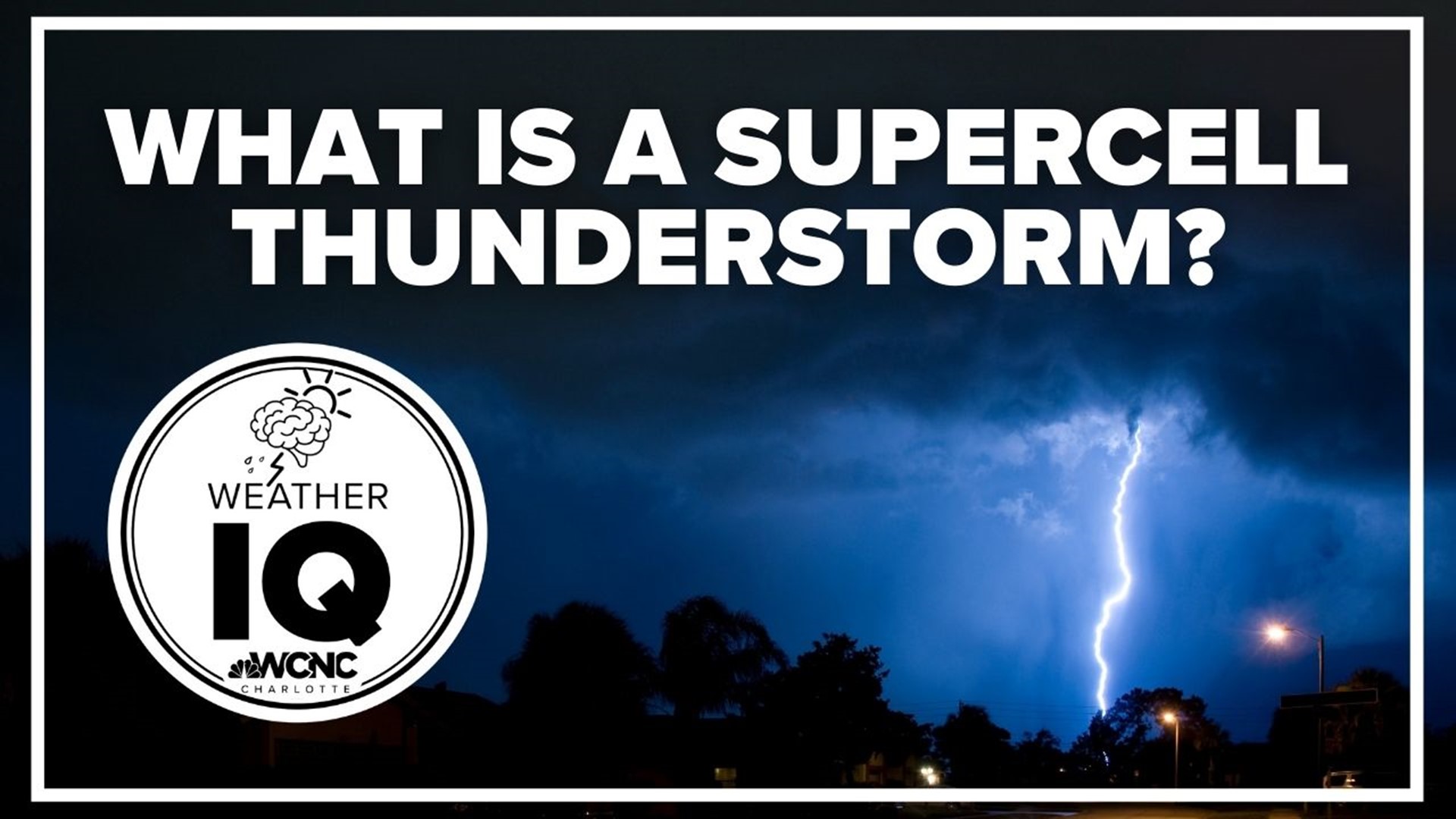CHARLOTTE, N.C. — A supercell is the least common type of thunderstorm. However, it has a large risk of producing severe weather, so it’s not a storm you want rolling through Charlotte.
Supercells are often accompanied by a wall cloud. These clouds drop down low and are often where meteorologists look for a funnel cloud to form, or even a tornado to touch down.
What makes a supercell unique is the structure of the storm. It has a deep, rotating updraft called a mesocyclone. A mesocyclone forms when a thunderstorm updraft meets veering winds. When winds veer, this means they are turning clockwise with height.
As the air rises in the storm, the winds begin to twist the updraft until the whole column of air is spinning.
A rotating storm is a worst-case scenario, but that’s what you’re guaranteed to see outside if a supercell thunderstorm is nearby.
With a supercell, you are guaranteed to see large hail and strong, damaging winds. Even more intense, there’s a significant risk for tornadoes: 30% and sometimes higher.
These storms are also unique in that they can last for hours. They do this by creating a self-sustaining circulation that allows them to survive cut-off from the main line.
Supercells can sometimes form along a boundary but can break apart from it.
In the Carolinas, supercells are most common during spring and fall. This is due to warmer surface temperatures, high humidity, favorable wind profiles, and ample lift in the atmosphere.
If you hear the WCNC Weather team talking about supercells, you know it's serious. If supercells were in the forecast, this would most likely be during a Weather Aware day.
Contact Brittany Van Voorhees at bvanvoorhe@wcnc.com and follow her on Facebook, Twitter and Instagram.

